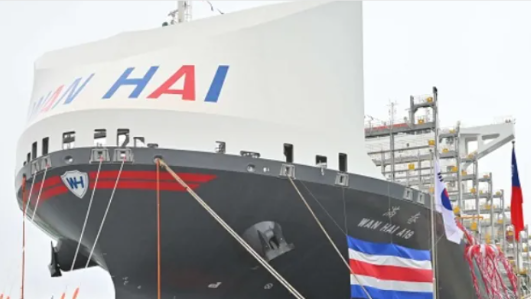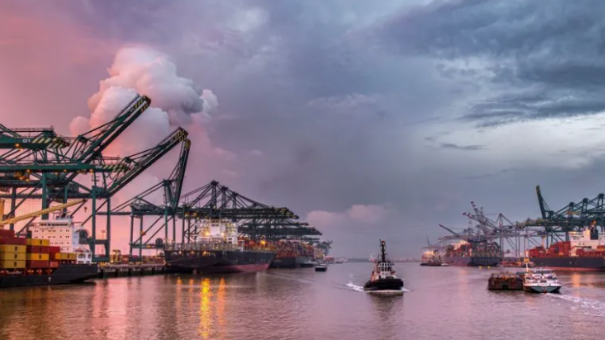Starting today, April 1, the third phase of the EU Customs ICS2 (Import Control System 2) will officially be implemented.
With the increasing development of global trade, ensuring the security and compliance of cargo transportation has become more crucial. Since December 4, 2024, the second phase of ICS2 has been in effect. ICS2 is an EU customs pre-arrival security and compliance program aimed at improving the security and compliance of goods entering or transiting the EU, Northern Ireland, Norway, and Switzerland. The program requires customers to provide additional security and compliance data at least 24 hours before cargo shipment to ensure transparency and security of the goods.
ICS2 is implemented in three phases:
- Phase 1: From June 3, 2024, to December 4, 2024, applies to sea and inland waterway carriers.
- Phase 2: From December 4, 2024, to April 1, 2025, applies to freight forwarders (House Filers).
- Phase 3: From April 1, 2025, to September 1, 2025, applies to road and rail carriers.
From April 1, the third phase of ICS2 will impose stricter requirements on all non-EU imported goods. All internal-level declarants (freight forwarders, importers, ground agents, etc.) must connect to ICS2 and submit entry summary declarations (ENS) for the goods they handle. In addition to the existing air, sea, and inland waterway requirements, the customs process before arrival will now apply to all transport modes, including road and rail.
CLECAT, the European Freight Forwarding Association, stated that European freight forwarders have been "working hard to prepare." However, they also faced significant challenges. The technical complexity posed considerable barriers, especially in system integration and compatibility with the new ICS2 requirements. The support level at national authority help desks was often insufficient or delayed, complicating efforts to achieve timely compliance.
Nicolette van der Jagt, CLECAT's Director General, explained, “Furthermore, freight forwarders who choose to make a single declaration to shipping companies are facing additional operational difficulties, including a lack of electronic information systems capable of transmitting company-level data to carriers.” She further explained that these “flaws” led to delays as carriers extended deadlines, and in some cases, operational disruptions, including refusal to load goods.
Shipping Companies Release Relevant Notices
Hapag-Lloyd has warned that the "stricter customs regulations" under EU ICS2 will lead to "tighter enforcement," and European freight forwarders "have already encountered significant challenges."
In fact, Hapag-Lloyd is launching a "No MRN, No Loading" policy. The carrier stated, “Containers without ENS declarations and MRN will not be loaded at the origin. The EU is enforcing stricter customs regulations... full compliance with ENS will be mandatory, and enforcement will be stricter.”
To avoid shipping delays or cancellations, Hapag-Lloyd requires shippers to submit all necessary details before the document deadline and ensure all data is accurate, as errors could prevent MRN issuance, leading to delays or cancellations.
Similarly, Maersk has introduced a "No Bill of Lading, No Loading" policy, meaning containers missing an ENS declaration will not be loaded but will be transferred to the next available vessel.
Carriers request that customers provide the necessary details "at least 48 hours before the vessel reaches the compliant loading port."
Shippers must also ensure that their EORI (Economic Operator Registration and Identification) number is correct and valid to avoid customs rejection. The accuracy of the EORI number can be verified through the EU's validation tool.
Failure to provide the correct cargo description or Harmonized System codes may also delay customs clearance.
Nicolette van der Jagt added that being registered as a House-Level Declarant with national customs authorities is also a challenge for freight forwarders. “Instructions on deployment windows are unclear, and establishing effective communication with authorities is difficult.”
CLECAT also noted that it is hard to find reliable technical resources and IT service providers, which adds to the frustration of freight forwarders. The association has urged the European Commission to publish a list of IT service providers registered with ICS2, similar to the list maintained by the UK’s HMRC.
“In regions like France, freight forwarders have limited options, with only two customs-approved IT service providers, and there is no information on potential new certified providers,” said Nicolette van der Jagt.

Last
Wan Hai Lines Names Its 11th 13,100 TEU New Vessel-Wan Hai A18
On March 27, Wan Hai Lines held a naming ceremony for its vessel Wan Hai A18 at the Samsung Heavy Industries shipyard in Geoje, Ko

Next
Nationwide Strike! Ports Blocked with Numerous Ships, Airport Services Paralyzed
On March 31 (Monday), workers from both the public and private sectors held a 24-hour strike in protest against Belgium's new gove
